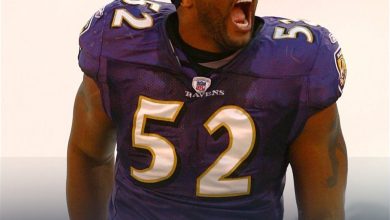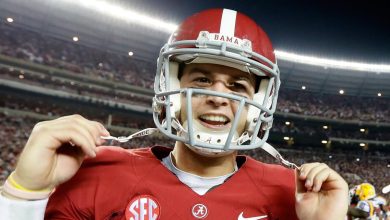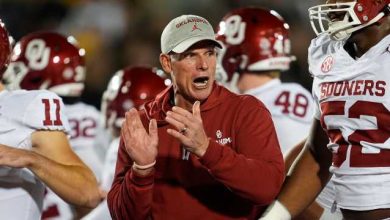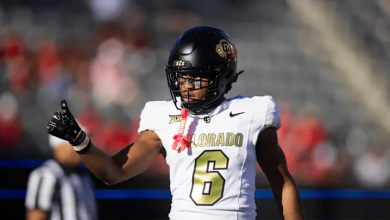Jalen Hurts among Eagles who did not attend team’s Super Bowl visit to White House
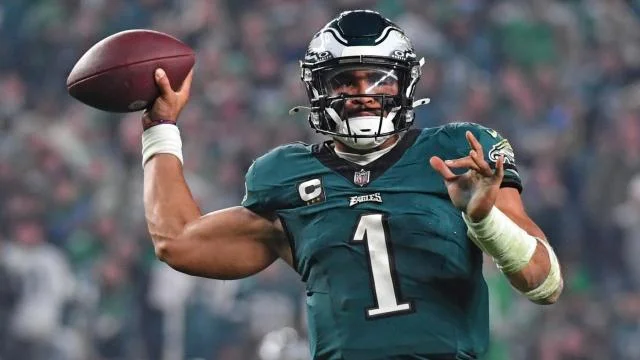
In the wake of their thrilling Super Bowl LIX victory over the Kansas City Chiefs, the Philadelphia Eagles had much to celebrate. It was their second NFL title in seven years and a reaffirmation of the franchise’s place among the league’s elite. Yet, amid the jubilation, a cloud of controversy formed when several key members of the team, including star quarterback and Super Bowl MVP Jalen Hurts, were absent from the traditional White House visit, reigniting a broader conversation about the intersection of sports, politics, and personal principles.
The annual White House visit for championship teams has long been a symbolic tradition in American sports, representing a moment of national unity and recognition. However, in recent years, it has increasingly become a political lightning rod. Players’ attendance—or lack thereof—often makes headlines, especially when it involves high-profile athletes like Hurts.
The Visit That Sparked a Conversation
On April 28, 2025, President Donald J. Trump welcomed the Philadelphia Eagles to the White House to celebrate their 31-27 victory in Super Bowl LIX. Despite the momentous occasion, a notable portion of the roster — including Hurts, star receivers DeVonta Smith and A.J. Brown, and several defensive starters — were not in attendance. Estimates from reporters covering the event placed the number of absentees at nearly half the team.
President Trump, no stranger to mixing politics with sports, used his remarks to praise the Eagles as “tough, focused winners,” even going out of his way to commend Jalen Hurts by name for his performance, despite Hurts’ absence. “He played one of the best games we’ve ever seen. A true champion,” Trump said. The omission, however, did not go unnoticed by media outlets, fans, and political commentators.
Why Didn’t Hurts Attend?
When reporters initially asked Hurts about his intentions to attend the White House event, the usually composed and articulate quarterback offered a vague and hesitant response: “Umm…” before trailing off and ending the interaction. This ambiguity only intensified speculation about his reasons for skipping the visit. Neither Hurts nor his representatives issued a formal statement, but several players, when asked, cited “scheduling conflicts” — an explanation many found unconvincing.
Online speculation quickly filled the void, with fans and critics alike offering interpretations. Given Hurts’ previous public support of social justice causes, many assumed his absence was intentional and ideological, a quiet yet pointed protest against President Trump’s policies and rhetoric.
This theory wasn’t without precedent. In 2020, while still in college, Hurts used his platform to advocate for racial justice and voter participation. In 2023, ahead of the presidential election, he praised former President Barack Obama’s leadership style in a feature interview, although he stopped short of endorsing any candidate.
While Hurts’ silence has allowed room for interpretation, many view his decision as a deliberate refusal to normalize or legitimize Trump’s presidency, particularly given the contentious nature of Trump’s political return and his divisive tenure in the Oval Office.
A Divided Locker Room? Not Quite
The Eagles, despite the absence of many stars, were not fully boycotting the visit. Several veteran players, including offensive tackle Lane Johnson, tight end Dallas Goedert, and defensive end Brandon Graham, were present and participated in the day’s events. Some, like running back Saquon Barkley — a high-profile free agent addition in 2024 — even took photos with President Trump and shared pleasantries during the post-ceremony reception.
When asked about the optics of attending amid teammates’ absences, Barkley replied, “I respect the office of the presidency. I’ve played golf with President Obama. I’ve shaken hands with President Bush. This isn’t about politics for me. It’s about tradition and representing my team.”
Barkley’s sentiment was echoed by others, including head coach Nick Sirianni, who told reporters: “We respect every player’s right to choose. This isn’t mandatory. What matters is what we accomplished on the field. That unity is what got us here.”
Behind the scenes, team sources insisted that no internal rift existed and that the players had agreed to respect individual choices. However, the optics of a divided roster — with many of its most influential players absent — were unavoidable.
The Tradition of Championship Visits — and Protests
The Eagles’ situation is not unique in the NFL or other major sports leagues. Over the past decade, championship team visits to the White House have frequently become flashpoints for political statements.
In 2017, members of the New England Patriots opted out of their White House visit after President Trump publicly criticized NFL players who knelt during the national anthem. In 2018, the Golden State Warriors declined the invitation altogether, with players like Stephen Curry and Kevin Durant speaking openly about their objections to Trump’s presidency.
Notably, the Eagles themselves declined to visit the White House after their Super Bowl LII victory in 2018. Then-President Trump rescinded the invitation after several players publicly said they would not attend. Instead, the team held a private celebration in Philadelphia, emphasizing unity and community engagement.
Given this history, Jalen Hurts’ absence this year feels like a continuation of a pattern — one where athletes, especially Black athletes, use or withhold their presence to make a statement.
Public Reaction: A Divided Nation Responds
The response to Hurts’ no-show was swift and polarized.
Progressives and many fans praised Hurts for standing by his values. Social media was filled with tributes, memes, and messages of support for his “quiet strength.” Commentators on shows like ESPN’s First Take and FS1’s Undisputed lauded his “dignified resistance.”
On the other hand, critics — including some conservative media voices and fans — accused Hurts and others of disrespecting the office of the president. “You’re the Super Bowl MVP. Show up and represent your team. This isn’t about politics,” said one Fox News analyst.
Trump himself, perhaps sensing the controversy, avoided criticizing the absent players directly. Aides later told reporters the president wanted to “keep the focus on the victory” and avoid “another media circus.” However, sources close to the administration admitted privately that Hurts’ absence “stung a bit” given the magnitude of his performance and his national profile.
The Broader Issue: Athletes and Political Expression
At the heart of the controversy is an enduring question: Should athletes be expected to participate in politically symbolic traditions like White House visits, even when they personally oppose the administration in office?
Many, including constitutional scholars and civil rights advocates, argue that the freedom to abstain from such events is a powerful and necessary form of expression. Others suggest that once athletes represent a team, they assume a certain obligation to appear in national ceremonies.
Jalen Hurts’ case adds a layer of complexity. He didn’t make a public speech, take a knee, or release a statement. He simply did not attend. That quiet form of protest — or personal boundary — resonates deeply with those who see it as a modern form of agency.
It also highlights a generational shift in how athletes use their platforms. Where once sports and politics were strictly separated in the public consciousness, today’s athletes are expected — and empowered — to reflect their values in their actions both on and off the field.
What’s Next for Hurts and the Eagles?
Despite the media frenzy, Hurts has shown no signs of distraction. At offseason workouts, he has been sharp, focused, and engaging with teammates. Coaches insist that the team is “100% aligned” on their goals for the 2025–2026 season.
Privately, some within the Eagles organization acknowledge that the controversy may follow Hurts into training camp and potentially into the regular season, especially if political tensions rise as the 2026 midterms approach.
But if the past is any indicator, Hurts is unlikely to be fazed. Known for his calm demeanor and team-first mentality, he has already demonstrated that he can weather public scrutiny without flinching. His decision not to attend the White House is, for many, just another example of his commitment to being true to himself.
Jalen Hurts’ absence from the White House visit may have started as a personal choice, but its implications extend far beyond the confines of the Eagles locker room. In a time when every gesture from public figures is analyzed, amplified, and politicized, even silence — or in this case, non-attendance — speaks volumes.
Whether one views Hurts’ decision as an act of protest or simply a personal boundary, it is a reminder of the evolving role of athletes in American society. No longer confined to the field, they are active participants in national conversations — and sometimes, the most powerful message is the one not spoken at all.



